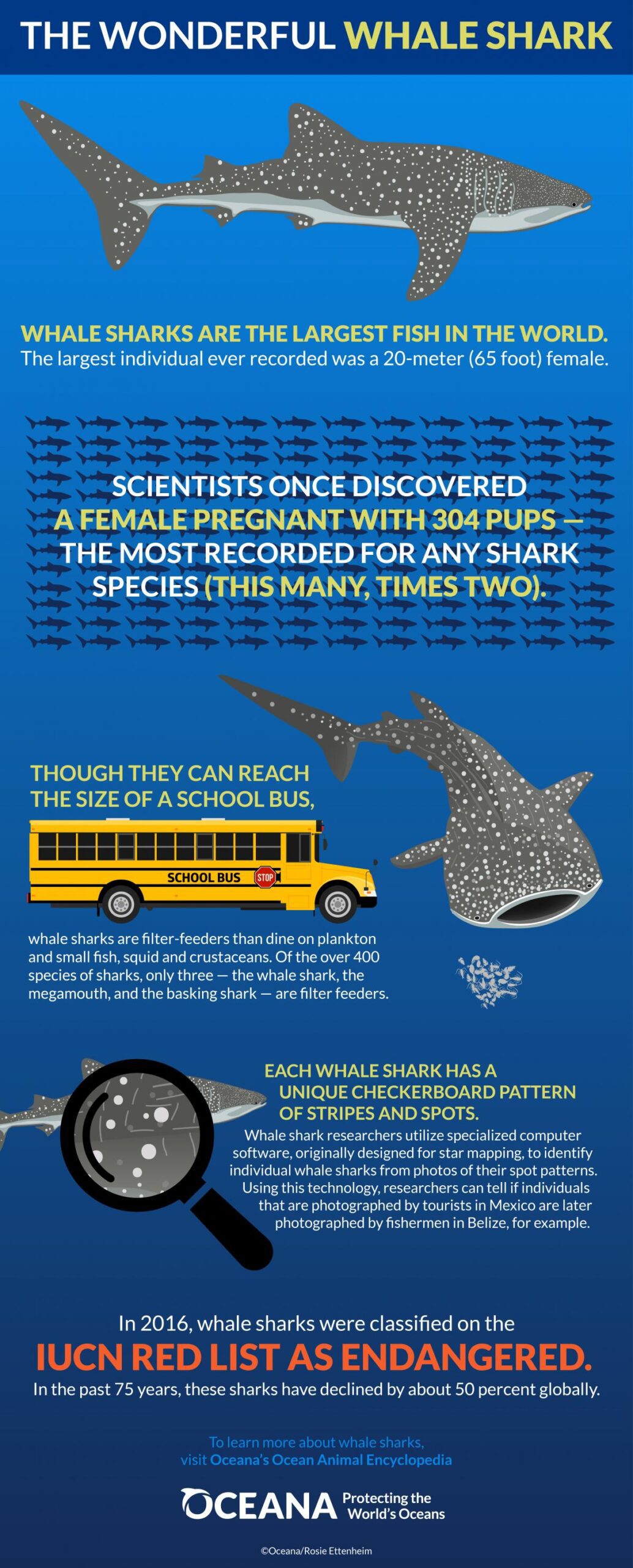August 30, 2019
Why whale sharks, the world’s largest fish, are in danger
BY: Emily Nuñez
Whale sharks are often called the “gentle giants” of the sea – and for good reason. Though they are the largest fish on Earth, with some individuals growing to the size of a school bus, they snack exclusively on small prey such as plankton, crustaceans and squid.
Thanks in part to their remarkable size and indifference toward humans, snorkelers and divers flock to warm waters around the world to swim alongside these friendly sharks (yes, they’re technically sharks, and therefore fish). Mexico and the Philippines – two places where Oceana fights to protect ocean habitats and the marine life that dwell there – see the highest numbers of known whale sharks of any coastal country, respectively.
While whale sharks may seem abundant in these regions, the grim reality is that they are endangered, and have been for three years now, according to the International Union for Conservation of Nature and Natural Resources (IUCN). Oil and gas drilling, shipping vessel collisions, commercial fishing and improperly managed tourism all pose grave threats to whale sharks. So if we want to keep swimming (safely and sustainably) with whale sharks well into the future, we must mitigate these dangers and continue to protect their homes and migratory routes.
In recognition of International Whale Shark Day today, August 30, here are a few other facts worth knowing about these docile creatures.




